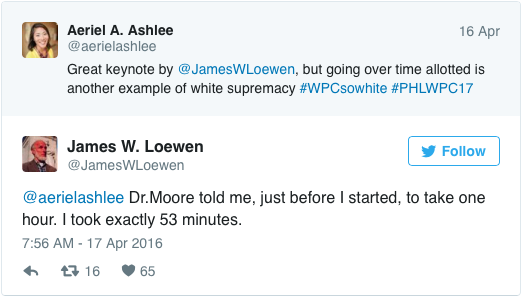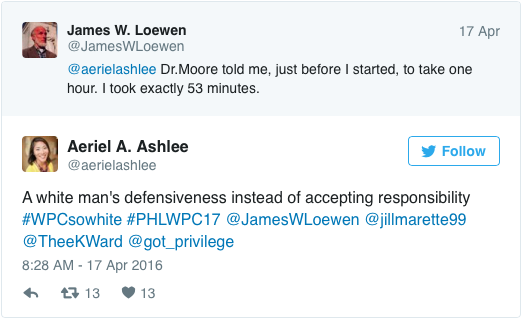
Every week on Monday morning , the Council and our invited guests weigh in at the Watcher's Forum, short takes on a major issue of the day, the culture, or daily living. This week's question:
China And Russia - Enemies or Potential Partners?
The Razor : Neither of these nations are America’s natural enemies, but it doesn’t matter what we think. What matters is what they think, and they both perceive us as their enemies so we would be foolish not to respond accordingly. And that’s what we’ve been for the past dozen years or so, responding foolishly.
The problem with our response is that it confuses Beijing and Moscow. They see us as an enemy in zero-sum terms, so perceive our statements as indicating weakness. This has emboldened them to expand, Russia in Eastern Europe and China in the south China Sea. The more they expand the more we talk and the less we act. They therefore perceive this as further weakness.
Eventually the are going to push too far and cross a line where the US will have no choice but to act. For Russia that may be against Poland or possibly one of the Baltic states, and in China it could be against Taiwan or through supporting North Korea. From their perspective our action will be unexpected, which is why it is important that we respond in kind with each and every move they make. We must speak their language and ratchet up the actions each time they press us in order to prevent them from overplaying their hands. It’s a form of real-politic that the ancient Roman emperors would understand (or their descendants the Italian mafia), but that the geniuses at Foggy Bottom have missed in their diversity training.
Stately McDaniel Manor :Russia and China are enemies. To be sure, they have adopted at least some of the characteristics of fiscal Capitalism, but this is out of economic necessity. Communism, as economic underpinning for a state, is always and everywhere a dismal and murderous failure. Where both nations still cling to the ultimately totalitarian nature of Communism we see the necessity of keeping an outside, all-powerful boogeyman--the United States--foremost in their minds and propaganda. They have no doubt they are our enemies, and are delighted to play us for suckers when we think smiles, handshakes and insincere promises and lies portend otherwise.
We certainly, and when it suits our national security needs, ally with both nations, but thinking, for an instant, that they give a moment’s thought to what is good for America, or for a peaceful and prosperous world order, is dangerous credulousness. The leadership of both nations thinks only of what benefits them and what will keep them in power.
Combine this with enormous arsenals of nuclear weapons, and one begins to understand the nature of the threat. Add in the aggressive, and purposefully provocative behaviors of both nations over the last few years, and we see two still-Communist nations that are actually more dangerous than they were during the Cold War.
Why more dangerous? Because America is led by weaklings and fools, people the Communists know they can play like violins from Hell. What makes the span from now until January so uniquely dangerous is both Russia and China understand that there is no way Barack Obama would use nuclear weapons against an adversary. They could wipe New York City off the map, and he would not respond in kind. They can even be reasonably assured that he would not respond with conventional weapons in any meaningful way.
Remember John Kerry’s threat of an “unbelievably small” military response to Syria?
What this calculation portends is scary indeed. If the Russians and particularly the Chinese, think Obama is too weak to respond to attacks on Americans, they can be certain he would never uphold America’s mutual defense treaty obligations with her allies. At few times in world history has America’s fecklessness and retreat so invited aggression, and at few times have our enemies--again, particularly the Chinese--been stronger or more capable of taking advantage of American moral weakness.
I am not convinced that Barack Obama is not doing his best to make America and her allies inviting targets for the enemies of liberty, but if he is not, what, apart from outright disarmament and surrender, would he be doing differently?
Throw international terrorism into the mix--which is surely supported and/or manipulated by the Communists to at least some degree--and it will be by the grace of God that we, and those foolish enough to ally with us, do not experience disaster between now and January, 2017.
Trevor Loudon: Russia and China are allies against the West. . Have been right through. Google Shanghai Cooperation Organization.
JoshuaPundit : Our relationships with Russia and China represent a unique opportunity provided we have competent leadership. Both countries face major problems that belie their tough stance, which has only been enhanced by the weak, incompetent and distrustful nature of our current president and his administration.
Russia and China both have very similar problems...poisonous demographics, moribund economies whose chief assets are in decline, and problems with Muslims.
China's one child policy has resulted in a severe shortage of marriageable females and a graying population balance far more intense than the U.S., all of which will have to be supported somehow by China's social welfare system. It's chief source of income, manufacturing, is in jeopardy. China invested heavily in manufacturing and now has a major overcapacity at a time when consumer consumption is
falling. They also are looking at a shortage of younger workers, to the point where the Chinese just closed a multi-billion dollar contract with Israel to design and build industrial robots for them. China's infrastructure is another problem with pollution and damaged, antiquated structures and facilities a major source of concern.
And while the Chinese downplay it, the insurrection and terrorist attacks by their Uigher Muslim population continue to grow more intense.
Russia's demographic problem is even worse. The problem there is that the vast amount of pregnancies among native Russians end in abortion, and only one sector of the population is having children at replacement rates - Russia's Muslims. Aside from Russia's problems with the Chechens, their own increasingly restive Muslim population has been linked to terrorist attacks within Russia. Brawls and even actual firefights have broken out in Russia's military between Muslim and native Russian soldiers.
Russia's economy is slowly sliding into basket case territory. Aside from the problems with the sanctions, Russia's main economic engine is energy, where prices have dropped to historic lows.
Another problem both share is a long standing distrust and hostility towards each other. They've fought wars against each other over territory and Russia still holds large areas across their shared border that China considers as theirs. While both countries belong to the
Shanghai Cooperation Organization, it's more a trade organization rather than an actual military alliance, especially when it comes to dealing with energy policy.
A place where Russia and China differ is in their basic worldview. Russia,fearing encirclement and a lack of access to warm water ports (that's a lot of what Crimea was about) has always been imperialistic, seeking to expand and especially to create a buffer zone along it's borders, not too hard to understand when you see how many times in history Russia has been invaded.
China's aim has been just the opposite, to secure its territory and keep foreign nations out. China has ever only gone to war along its borders, which the Chinese have always seen as defensive wars, with the possible exception of Tibet. At this point, maintaining those borders and maintaining access to trade and markets is China's foreign policy goal.
Given the problems these countries have, there is a great opportunity to create a strategic partnership between Russia and America and China and America. Nations, after all, have interests, not friends and cooperation in a number of areas is in the interest both countries as well as America.
We have a common enemy in Islamic fascism and their economic needs are an imperative. There's no reason that
Putin, an ultimate realist wouldn't cooperate with America on a number of items. In fact, he tried, in Syria, and after being lied to repeatedly by our current president gave it up a a wasted endeavor. Putin, I think, realizes the desirable benefits of engaging with America in a number of areas, but will requires an smart, honest horse trader on our side to make that happen in a way that works for both Russia and America. Might I add that Mrs. Clinton failed dismally at that task?
The same is true when it comes to China. Trade sanctions by America would devastate China's economy, which is already stumbling. Serious discussion with the Chinese could secure our mutual spheres of interest, get China's industry to build factories in America and create jobs here ala' Japan in the 1980's, and relieve tensions as we communicate effectively to the Chinese that the Western Pacific is America's strategic frontier, a concept they would understand. Even the problem of the Kims and North Korea is not out of reach...the Chinese are getting tired of them as a disruptive element, but will want assurances they can trust that China will control what happens on their border.
Perhaps Dr. Kissinger, whose mind is still as sharp as a whip even in his 90's could be persuaded to embark on one more mission for his country, something he has done clandestinely for every president since Nixon except for Barack Obama, who pointedly declined his services. The Chinese trust and respect Dr. Kissinger as they do all wise elder sages, and his health permitting, he's just the sort of intermediary whom could make a difference.
GrEaT sAtAn"S gIrLfRiEnD : Enemies or adversaries? Both, actually.
See, "Power" is the ability to get others to do what you want and prevent them from doing what you don't want.
Power changes people, and it changes nations. It changes their perceptions of themselves, of their interests, of their proper standing in the world, of how they expect to be treated by others. That is why the rise of great powers throughout history has so often produced tensions in the international system, and even wars.
Russia's turn toward liberalism at home stalled and then reversed, and so has her foreign policy. The centralization of power in the hands of Vladimir Putin has been accompanied by a turn away
from the integrationist foreign policy championed by Yeltsin and Kozyrev. Great power nationalism has returned to Russia, and with it traditional great power calculations and ambitions.
Contrary to the dismissive views of many in the West, Russia is a great power, and she takes pride in being a force to be reckoned with on the world stage. She is not a superpower, and may never again be one. But in terms of what the Chinese call "comprehensive national power"—her combined economic, military, and diplomatic strengths— Russia ranks among the strongest powers in the world.
Today she spends more than every country in the world except for the United States and China. Much of this has gone to modernizing her nuclear arsenal, which remains formidable by any standard - Russia still possesses16,000 nuclear warheads. Russia also has an active-duty force of more than a million soldiers; is developing new jet fighters, new submarines, and new aircraft carriers; and has resumed long-range strategic bomber flights for the first time since the end of the Cold War.
Russian military power is an integral part of her foreign policy. In addition to fighting a war in Syria and Ukraine, she maintains troops in Chechnya, Georgia and Moldova and has suspended her participation in the Treaty on Conventional Armed Forces in Europe (CFE), which had restricted her troop deployments. She has also been the leading supplier of advanced weaponry to China and has thus made herself a factor in the strategic equation of East Asia.
This new sense of power today fuels Russian nationalism. It also stirs up deep resentments and feelings of humiliation. Russians today no longer regard Moscow's accommodating policies in the 1990s as acts of enlightened statesmanship.
Today Russia's leaders seek to reclaim much of the global power and influence they lost at the end of the Cold War. Their grand ambition is to undo the post-Cold War settlement and to reestablish Russia as a dominant power in Eurasia, to make her one of the two or three great powers of the world.
What Russia wants today is what great powers have always wanted: to maintain predominant influence in the regions that matter to them, and to exclude the influence of other great powers.
Were Russia to succeed in establishing this regional dominance, like other great powers its ambitions would expand.
When the United States made herself the dominant power in the Western Hemisphere at the end of the nineteenth century, she did not rest content but looked to new horizons in East Asia and the Pacific.
Russia's self-image today is that of a world power, with global interests and global reach.
Europe may be ill-equipped to respond to a problem that it never anticipated having to face. Its postmodern tools of foreign policy were not designed to address more traditional geopolitical challenges. Europe is neither institutionally nor temperamentally prepared to play the kind of geopolitical games in Russia's near-abroad that Russia is willing to play.
Today the Chinese believe that their nation's ancient centrality, appropriately adjusted for the times and circumstances, can, should, and will be restored. They increasingly look back to imperial days for guidance about the future. Chinese thinkers and policymakers foresee a dawning era of renewed Chinese dominance in East Asia. Some see the world divided into two geopolitical spheres: a Euro-Atlantic sphere dominated by the United States and an Asian sphere dominated by China.
Chinese officials speak of extending strategic frontiers progressively outward to what they call the three "island chains": the first, running from Japan to Taiwan to the Philippines; the second, from Sakhalin to the islands of the Southwest Pacific; the third, from the Aleutian Islands off Alaska to the Antarctic.
While the Chinese navy remains far from achieving these more distant ambitions, the Chinese have been steadily replacing their antiquated naval and air forces with modern ships and aircraft, almost all purchased from Russia. Within a few years China will have roughly doubled its fleet of modern submarines and modern guided missile destroyers. For the 1st time in eons, China thinks of herself as a sea power.
Don't the Chinese understand that in the globalized world one can buy oil on the market without cozy relations with the oil despots of the world? Don't they see that the globalized world of international commerce has an interest in keeping waterways open and that China's buildup is therefore unnecessary?
Chinese leaders don't believe any of this, and with reason. Like all rising powers throughout history, like the United States, Japan, and Germany at the end of the nineteenth century, they fear that the rest of the world may conspire against them. Like the Russians, the Chinese believe that to be a great power they must be independent and self-reliant.
The Chinese have considered the United States hostile to their ambitions for decades. Long before Europeans began expressing concern about the "hyperpower," long before world opinion complained about America's arrogance and hegemonism, Chinese observers had pointed to her "superhegemonist" ambitions. They knew 41's new world order meant a dominant United States, with Russia and China in distinctly secondary roles.
China may speak of transcending traditional geopolitics. They may claim no interest in traditional
forms of power. But their actual policy is to accumulate more of it.
The Glittering Eye :Russia isn't necessarily our enemy although we seem bound and determined to make it one. The last three administrations have completely bungled relations with Russia. Each has presided over an expansion of NATO, none of which increased our security or that of Western Europe but were aggressive and provocative from Russia's viewpoint. Most recently we have supported the neo-fascist regime in Kiev which we are learning is as corrupt as its predecessors.
It didn't have to be this way. After the collapse of the Soviet Union, Russia downsized its military and reorganized it away from one prepared to confront Western provocations. Its gradual return was a response to NATO moves not their cause.
We should have been cooperating with the Russians in Syria. The Islamist rebels of whatever stripe are our common enemy. Now we've got Russian jets buzzing our planes and ships in the Baltic. I hope the Cold Warriors are happy. It's what they've been working for the last 20 years.
China on the other hand clearly sees itself as the rising power and us the declining power. The U. S. to our Britain. I think they're miscalculation but I believe they will be troublesome. We should stick to our longstanding grand strategy wherever it leads but I'm skeptical the present administration will do so. I think the Chinese would back down. Their aggression in the South China Sea isn't popular in China however popular it is with a small number of Chinese elites.
Russia and China are natural adversaries. We should have the wit to capitalize on that.
Laura Rambeau Lee,
Right Reason : We have gone beyond the impotent saber rattling from these communist countries seen during the peak of the Cold War. Over the past few years China has expanded its reach into the South China Sea through a reclamation project creating artificial islands; building airstrips and military installations and threatening regional peace. These are some of the world’s busiest shipping lanes as an estimated five trillion dollars of global trade per year passes through these waters. China’s control of these waters could have a devastating global economic impact.
A seemingly sleeping Russia flexed its might by invading the Crimea in Ukraine and annexing it into the Russian Federation in March of 2014. Just this week, two Russian fighter jets buzzed the USS Donald Cook, a U. S. Navy guided missile destroyer in the Baltic Sea, coming within 1000 yards of the destroyer and the next day a Russian jet came to within 30 feet of the destroyer. We can be assured Putin’s vision is the reclamation of the vast empire once under the banner of the Soviet Union.
We’ve gone beyond the “trust but verify” days of President Ronald Reagan. China and Russia are our enemies and are not just testing the response of the United States and our allied nations. I fear theirs is an unholy alliance whose goal is to divide and conquer as they expand power and seize control of more countries and waterways. All of this is happening as the Obama Administration is systematically downsizing and demoralizing our all volunteer military. It’s no surprise the threat to our national security is growing as President Obama seems unwilling to do anything to stop it. I just hope nothing catastrophic happens before the next president is sworn in, and that the next president has a good understanding of these truly existential threats and is willing to act; through diplomacy when possible or militarily if necessary. Unfortunately, it is impossible to be an isolationist in this 21st century.
Well, there you have it.
Make sure to tune in every Monday for the Watcher’s Forum. And remember, every Wednesday, the Council has its weekly contest with the members nominating two posts each, one written by themselves and one written by someone from outside the group for consideration by the whole Council. The votes are cast by the Council, and the results are posted on Friday morning.
It’s a weekly magazine of some of the best stuff written in the blogosphere, and you won’t want to miss it.
And don’t forget to like us on Facebook and follow us on Twitter..’cause we’re cool like that, y'know?



 It’s almost unfathomable. POC and indigenous ppl come to their very own white people bashing conference and find themselves unsafe! Who coulda thunk it? But the horror was just beginning:
It’s almost unfathomable. POC and indigenous ppl come to their very own white people bashing conference and find themselves unsafe! Who coulda thunk it? But the horror was just beginning:








